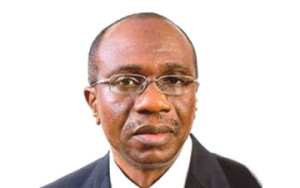
With the February 2016 inflation figure of 11.4 per cent, the highest in three years, Nigeria’s economy would now be grappling with the misery index, which measures the level of suffering in a society. The latest inflation rate is the ninth consecutive rise month-on-month with analysts projecting further rises in the months ahead, except something positively dramatic or miraculous happens at a point later on in the year. Of major concern in the latest inflation report is the rapid pace, about the fastest rise in over a decade, and for the first time, beating all analysts’ projections (including those of pessimists) by a wide margin.
Both the National Bureau of Statistics (NBS) and independent analysts believe the spikes in core and food inflation are attributed to the exchange rate pass-through, which has affected consumer prices in both sub-indices through the imported and processed food components which have also pervaded domestic prices. In the light of the extent of the cost-push effect of the exchange rate crisis on the Consumer Price Index, many analysts have revised their 2016 average headline inflation figure to 11 per cent, which indicates that inflation will reach a high of 12.4 per cent year-on-year by October before ending the year at 12.2 per cent. The foreign exchange crisis remains the largest risk to the inflation outlook.
The opposition of the Central Bank of Nigeria (CBN) to devaluation is partly based on its impact upon inflation. But with the latest inflation report the resistance strategy seems to have failed. Already the inflation rate has made a mess of CBN’s target maximum rate of 9.0 per cent. We also note the impact of other factors such as the increase in the electricity tariff in February 2016 and fuel shortages that impacted on the transportation cost-push, a factor clearly beyond CBN. Certainly, the alarming inflationary level is expected to be a key focus for the CBN at its Monetary Policy Committee (MPC) meeting which will hold early this week.
The outcome is eagerly awaited. The present economic circumstance questions the current monetary policy thrust of the CBN which appears to have given up the objective of price stability for an induced foreign exchange stability, trade protectionism and stimulating domestic manufacturing growth. We expect the CBN to be more creative and review the current monetary policy thrust because it is yet to have a salutary effect on development indicators such as GDP growth, credit to the private sector, manufacturing PMI, amongst others. Though we do not see any easy way out of the tight corner, we expect the MPC, in addition to altering its policy thrust, to also boldly engage the political leadership on the need for complementary fiscal policy measures.
Vanguard
END

Be the first to comment